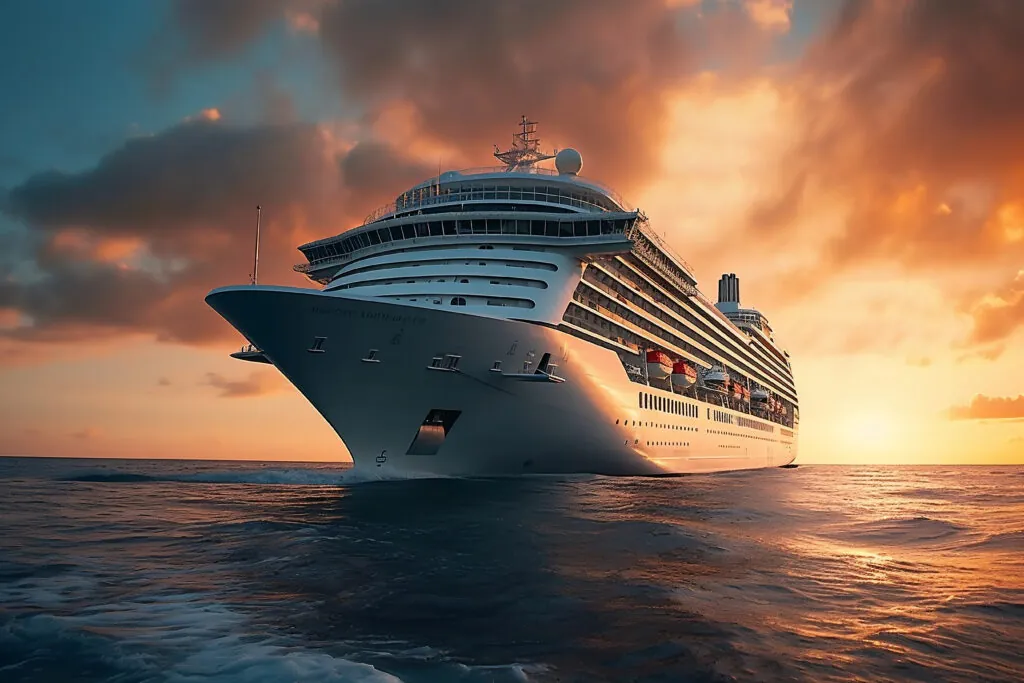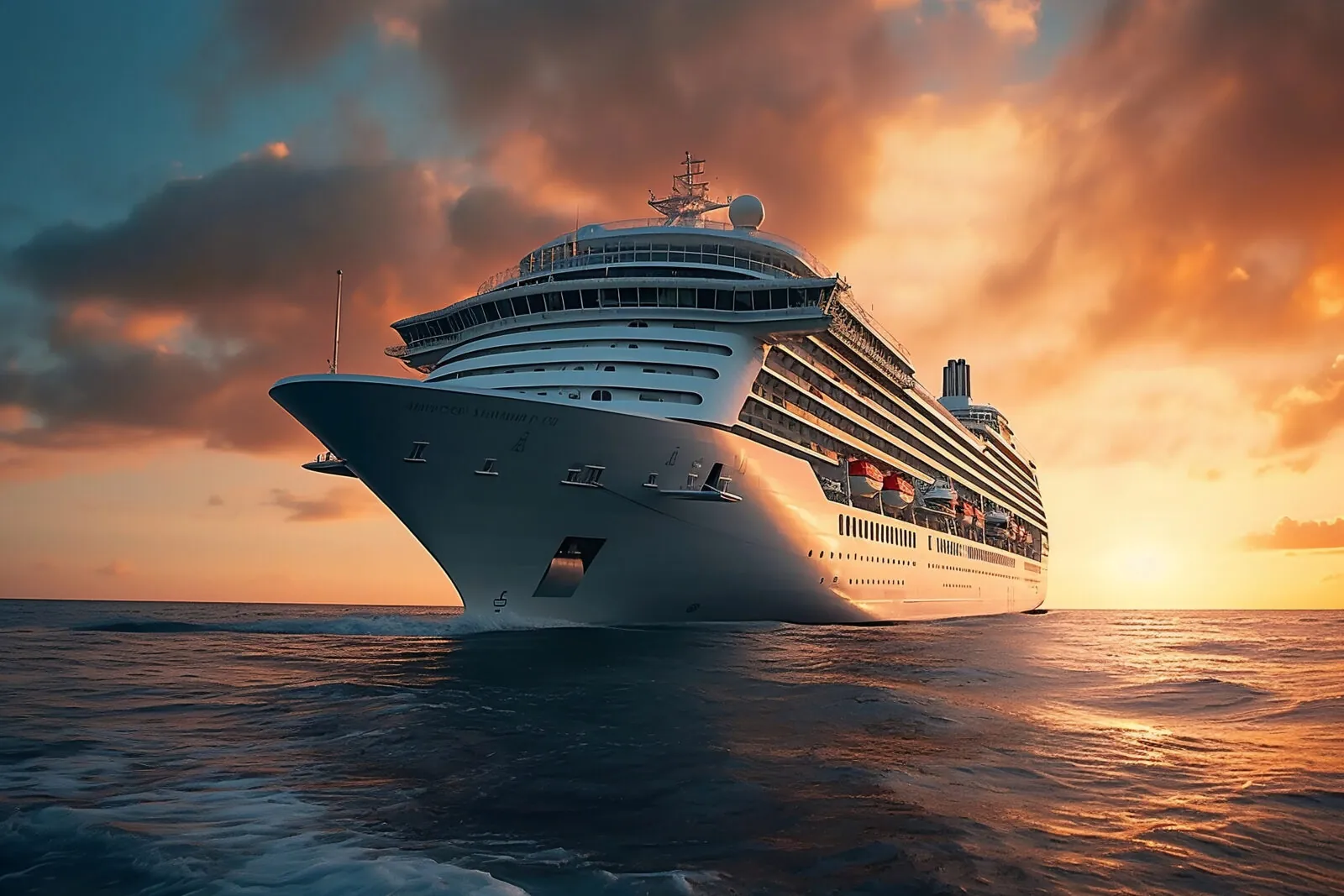How Crew Misconduct or Assault Impacts Cruise Ship Injury Lawsuits
Cruise vacations should be a time of relaxation, luxury, and adventure. However, accidents, injuries, and even misconduct by crew members can turn a dream vacation into a legal nightmare. Whether it’s a slip-and-fall, a medical emergency, or an assault by a crew member, passengers need to know their legal rights and the steps they can take to seek justice.

In this guide, we’ll break down everything you need to know about cruise ship injury lawsuits, crew misconduct claims, and how maritime law applies to these situations. If you or a loved one has been harmed on a cruise, understanding your legal options is the first step toward securing compensation.
Understanding Cruise Ship Injury Lawsuits
What is a Cruise Ship Injury Lawsuit?
A cruise ship injury lawsuit is a legal claim filed by a passenger who has suffered harm due to negligence or misconduct while on board a cruise ship. These claims can include:
- Slip-and-fall injuries: Wet decks, loose carpeting, and poorly maintained stairs can lead to serious falls.
- Medical malpractice by cruise doctors: Some cruise ship doctors fail to provide adequate medical care, leading to worsening conditions or improper treatment.
- Negligent security leading to assault or theft: If cruise ship security fails to prevent an attack or theft, the cruise line can be held responsible.
- Crew member misconduct or assault: Assault, harassment, or mistreatment by staff members can result in lawsuits.
- Food poisoning outbreaks: Contaminated food or water can lead to serious gastrointestinal illnesses.
- Swimming pool or waterslide accidents: Poorly maintained or unsupervised pools can lead to drownings or severe injuries.
Many of these injuries result from cruise line negligence, including poor safety procedures, lack of security, or inadequate maintenance. If a cruise line fails in its duty to protect passengers, it can be held legally responsible.
Who is Liable for Injuries on a Cruise Ship?
Cruise lines have a duty of care to keep passengers safe. However, liability depends on where and how the injury occurred. Possible responsible parties include:
- The cruise line itself: Cruise companies are responsible for maintaining a safe environment on board. If they fail to do so, they can be held accountable for negligence.
- Crew members: If an individual crew member acts recklessly or intentionally harms a passenger, they can be held personally liable, along with their employer.
- Third-party excursion companies: Many cruise lines partner with local excursion providers. If an injury happens during a tour, the third-party company may be responsible.
- Security staff: If security fails to prevent criminal activity or does not respond to threats appropriately, they can be held liable for negligence.
Crew Misconduct and Passenger Assault Claims
What is Crew Misconduct?
Crew misconduct includes any improper or illegal actions committed by cruise ship employees. This can range from harassment and assault to negligence in handling emergencies.
Common misconduct cases include:
- Sexual assault by crew members: Some passengers have reported being assaulted by staff members who take advantage of their authority.
- Verbal or physical abuse of passengers: Harassment, threats, or aggressive behavior from staff members is unacceptable.
- Crew negligence leading to injuries: If a crew member fails to respond to an emergency or ignores safety rules, they can be held responsible.
Security failing to prevent altercations or theft: In some cases, poorly trained security personnel do not respond appropriately to dangerous situations.
Are Cruise Lines Responsible for Crew Member Assaults?
Yes, cruise lines can be held liable if a crew member assaults a passenger or engages in any form of misconduct. Cruise companies are responsible for:
- Hiring qualified and background-checked staff
- Providing proper training and supervision
- Ensuring passenger safety
If they fail to do so, they may face lawsuits for negligent hiring, failure to supervise, or security negligence.
How to Report Crew Misconduct or Assault
If you experience assault or misconduct on a cruise, take these steps immediately:
- Seek medical attention: Get medical treatment and request a copy of your medical records.
- Report the incident: File a complaint with cruise security and ask for a written record.
- Document everything: Take pictures, write down details, and gather witness statements.
- Contact authorities: Notify the FBI (if in U.S. waters), port authorities, or maritime law enforcement.
- Speak to a lawyer: A maritime personal injury attorney can guide you on your legal options.
Filing a Lawsuit Against a Cruise Line
Steps to Take When Filing a Lawsuit
If you’ve been injured or assaulted on a cruise, follow these steps to file a personal injury lawsuit:
- Gather Evidence: Collect medical records, eyewitness statements, security reports, and photos/videos.
- Identify the Defendant: Lawsuits may be against the cruise line, crew members, or third-party operators.
- Understand the Statute of Limitations: Most cruise ship lawsuits must be filed within one year of the incident.
- Determine Jurisdiction: Many cruise lines require lawsuits to be filed in a specific court (often in Miami, Florida).
- Hire a Maritime Lawyer: A lawyer experienced in maritime personal injury law can help you navigate the legal process.
Maritime Law and Cruise Line Liability
How Does Maritime Law Protect Injured Passengers?
Maritime law (also known as Admiralty Law) governs legal issues that occur on navigable waters, including cruise ships. Key protections include:
- The Jones Act – Protects maritime workers but also applies to passengers in some cases.
- The Death on the High Seas Act (DOHSA) – Provides compensation for families of passengers who die due to cruise ship negligence.
International Treaties – Many cruise ships are registered in foreign countries, affecting jurisdiction and legal options.
Compensation for Cruise Ship Injuries
What Damages Can You Claim?
If you win a lawsuit against a cruise line, you may receive compensation for:
- Medical expenses (hospital bills, rehabilitation costs)
- Lost wages (if you cannot work due to injury)
- Pain and suffering
- Emotional distress
- Punitive damages (in cases of gross negligence or misconduct)
How Much Compensation Can You Expect?
The amount of compensation depends on:
- Severity of injury
- Evidence of cruise line negligence
- Impact on daily life and employment
- Legal strength of the case
Frequently Asked Questions (FAQ) About Cruise Ship Injury and Crew Misconduct Lawsuits
Can I sue a cruise line if I get injured on board?
Yes, you can sue a cruise line if your injury resulted from negligence, unsafe conditions, or misconduct by the crew. However, maritime law and cruise contract clauses can affect where and how you file your lawsuit, so consulting a lawyer is essential.
What should I do if I’m injured on a cruise ship?
If you’re injured on a cruise ship, seek medical attention immediately and document everything, including photos of the accident scene, witness statements, and medical reports. Report the injury to cruise ship officials and request a written incident report. Contact a maritime injury lawyer as soon as possible to understand your legal options.
Are cruise lines responsible for crew member misconduct?
Yes, cruise lines can be held liable for crew member misconduct, including assault, harassment, or negligence. If a cruise line fails to conduct proper background checks, does not provide adequate supervision, or ignores previous misconduct complaints, they can be sued for negligent hiring and failure to provide a safe environment.
What legal options do I have if I am assaulted by a cruise ship crew member?
If you are assaulted by a crew member, you should report the incident to cruise security and local authorities at the next port. Gather as much evidence as possible, including medical records, photos, and witness statements. A maritime personal injury lawyer can help you file a lawsuit against both the crew member and the cruise line for failing to protect you.
Where do I file a lawsuit against a cruise line?
Most cruise lines require lawsuits to be filed in a specific jurisdiction, which is often stated in the fine print of your cruise ticket contract. Many major cruise lines require lawsuits to be filed in Miami, Florida. This is why hiring a maritime injury lawyer familiar with these legal requirements is crucial.
Contact The Cruise Injury Law Firm Today
If you or a loved one has suffered an injury or misconduct on a cruise ship, you may be entitled to compensation under maritime law. However, these cases can be complex, and cruise lines often fight claims aggressively.
To ensure you get the justice and compensation you deserve, consult an experienced maritime personal injury lawyer as soon as possible.
Contact The Cruise Injury Law Firm today for a free consultation and take the first step toward holding the cruise line accountable.






